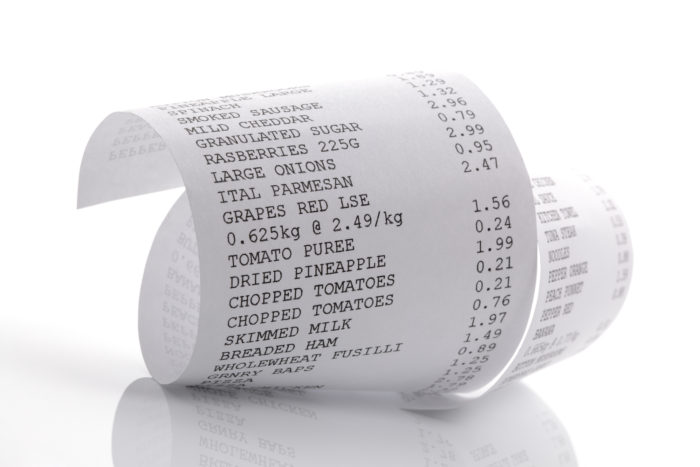Top Class Actions’s website and social media posts use affiliate links. If you make a purchase using such links, we may receive a commission, but it will not result in any additional charges to you. Please review our Affiliate Link Disclosure for more information.
FACTA consists of a set of consumer receipt laws established just after the turn of the century to protect consumer’s information in our technologically advanced world.
By restricting what information can be printed on a receipt, consumer receipt laws help protect against those who would use that information to commit fraud or identity theft.
FACTA consumer receipt laws are fairly simple, but being familiar with these laws strengthens the laws themselves, and protects your information as well as countless others’ accounts. Spotting violations of these consumer receipt laws may even result in a financial reward.
The Fair and Accurate Credit Transactions Act
The Fair and Accurate Credit Transaction Act, more simply known as FACTA, is a set of laws created to protect credit and debit card information, thereby protecting consumer accounts and identities.
The consumer receipt laws of FACTA were first passed in 2003. While businesses were allowed some time to adapt to these new rules, FACTA consumer receipt laws have been in full force since 2006.
Problems with identity theft and fraud are a growing concern across the country, and the consequences can cause major problems for consumers.
Basics of FACTA consumer receipt laws
There are two significant facets of FACTA consumer receipt laws. Both of these facets involve the truncation (shortening or censoring) of certain credit or debit card information, limiting the access a receipt holder has to your personal account numbers.
First, only the last five digits of a credit or debit card number may be displayed on receipts, and the rest of these digits should be censored. For instance:
**** **** ***5 4321
Businesses may choose to display fewer than the last five digits. In fact, since the majority of card numbers are already divided into groups of four, many choose to censor all but the last four digits, like this:
**** **** **** 1234
Digits displayed from elsewhere in the card number, even if it’s fewer than five digits, do not comply with consumer receipt laws. This, therefore, is not allowed:
1234 **** **** ****
The second major facet of FACTA consumer receipt laws deals with the expiration date. No portion of a debit or credit card’s expiration date may be printed on a receipt. With everything censored, it often looks like this:
**/**
or this:
**/****
While these consumer receipt laws do not apply to hand-written receipts, the vast majority of receipts are now printed by machines. Machine-printed receipts have another implication: if one machine does not comply with the consumer receipt laws highlighted in FACTA, it may print hundreds or even thousands of receipts in violation of these rules.
This means that reporting a violation of FACTA consumer receipt laws can help not just you, but hundreds or even thousands of other consumers as well.
FACTA lawsuits
FACTA allows those who receive an improperly printed receipt to bring a civil lawsuit. Depending on the circumstances, plaintiffs may be entitled to up to $1,000 per violation of FACTA consumer receipt laws.
Take note of whether or not your receipts follow FACTA consumer receipt laws for both card numbers and expiration dates. If they do not, then you may be able to file a FACTA lawsuit.
Free FACTA class action lawsuit investigation
If you made one or more purchases and the retailer provided you with a receipt that contained more than the last five digits of your credit or debit card number or the expiration date, you may be eligible for a free class action lawsuit investigation and to pursue compensation for these FACTA violations.
ATTORNEY ADVERTISING
Top Class Actions is a Proud Member of the American Bar Association
LEGAL INFORMATION IS NOT LEGAL ADVICE
Top Class Actions Legal Statement
©2008 – 2024 Top Class Actions® LLC
Various Trademarks held by their respective owners
This website is not intended for viewing or usage by European Union citizens.
















7 thoughts onThe basics of FACTA consumer receipt laws
Add me
Add me
Add m
Add me
Is it illegal to print a person full name on a receipt? You already have the last four numbers of the card.
Add me
Is it legal for a business to print your name and address on a receipt?